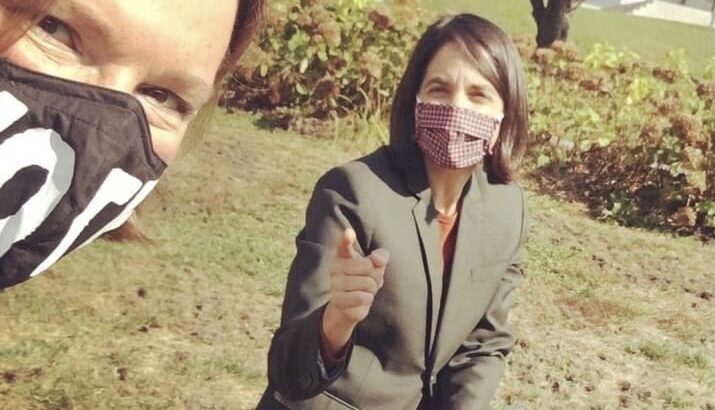As I finished up my transaction, I noticed the clerk’s expression–the portion visible above her mask. “Everything okay? Is your family healthy?” I asked. She shook her head and closed her eyes tight, fighting tears. “No, everything’s not okay. My dad’s dying, and we’re taking him off life support today.” Standing six feet away from her, I started to tear up, too. Her father had battled Covid-19 in a hospital in a faraway state. “He’s going to die alone,” she said.
Normally I respond to this kind of suffering with physical connection, and yet I could not hug her or even touch her arm gently. I apologized for not being able to physically comfort her and then asked about her dad’s name. I wanted to keep him in my thoughts and wish him a gentle passage from this life. This did not feel like nearly enough; I walked to the car with a very heavy heart.
We are fatigued and frustrated by the pandemic. We are lonely, cut off from family and friends, and unmoored by a situation largely beyond our control. When we’re scared and self-protective, it’s exhausting to pivot outward and put energy into the communities that bind us together. But that’s exactly what we must do. This is not the time to scold each other about masks or family visits or to sit in judgment of our neighbors. As our infection rate continues to rise, we have to work to cultivate a sense of purpose and to remind each other that our community connections will help us ride out this very painful time.
In challenging moments, the work of UCLA philosophy professor Pamela Hieronymi has helped me reframe my frustration. In an interview about agency and responsibility from March of this year, Hieronymi explains that reactive attitudes—resentment, indignation but also gratitude—are the responses we have to what we perceive as the motivation for other peoples’ behavior. If I perceive that you have disrespected me or disregarded me by not wearing a mask, for example, I’m likely to feel resentment and indignation. But if I remember that we all feel uneasy and fearful, I can let go of some of my indignation and remember that I can’t know all that an individual stranger is holding inside.
Yes, we’re heading into a long, cold winter made all the more bitter by this pandemic raging across the nation, largely unchecked. But we shouldn’t forget that our response here in Vermont has been quite good. Rates of transmission have been low, and a lot of Vermonters are following Governor Scott’s and Dr. Mark Levine’s recommendations. We are community-minded, and we haven’t seen significant partisan rancor about our response to the pandemic. We must keep this in mind.
As more Vermonters contract Covid-19, I know it’s tempting for us to start using language like: This is no time to let up! We can’t get complacent! Don’t blow it now after all our hard work! But honestly, we all know that nagging doesn’t work. And, as Professor Hieronymi notes, scolding each other doesn’t bring us closer together; it just breeds resentment. Instead, let’s remind each other of our connectedness: We are a small state with tight knit communities. Let’s keep taking care of each other. Look after your family and your neighbors.
Let me be clear, I’m not some saint. I sometimes think snarky thoughts when I see someone waltz into the supermarket without a mask on. But I try to check my indignation by making a mental note to do something for a neighbor or for my community. We must all continue to build on the great work we’ve already done in Vermont. Pivoting towards each other and not away from each other is what will see us through.
